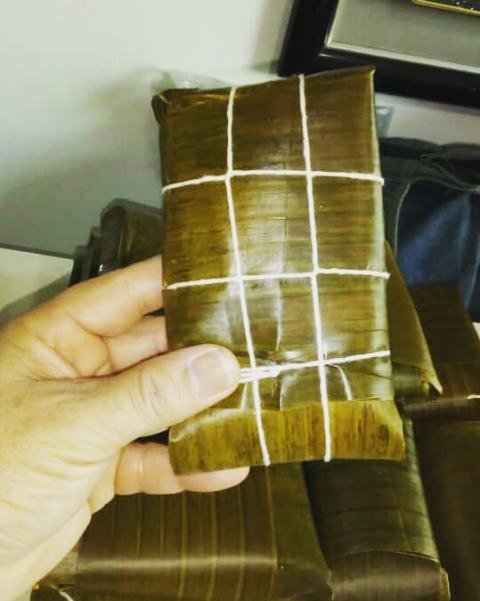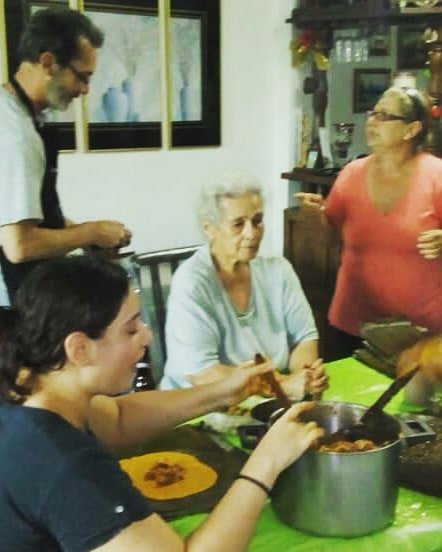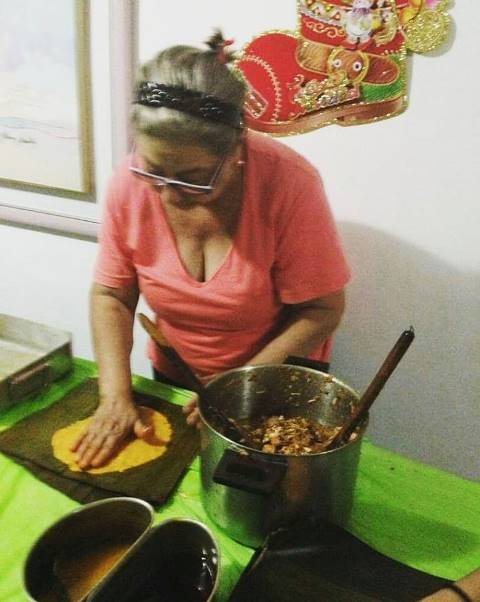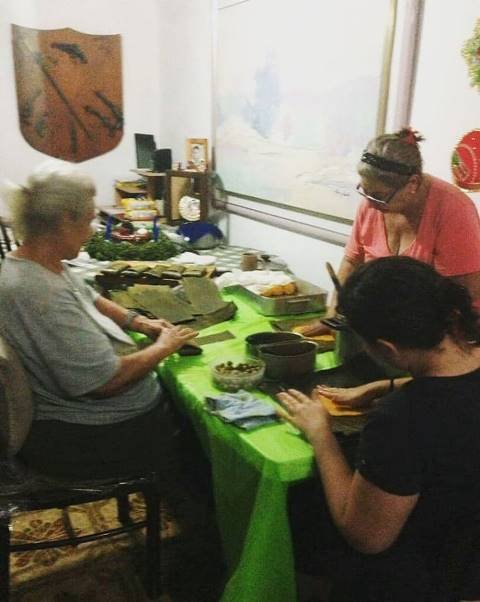Venezuelan Christmas arrived and, with it, the hallacas

The preparation of hallacas, one of the typical Venezuelan meals in December, is a tradition of great importance to us. It is the moment when the whole family gets together to collaborate and make as many hallacas as possible for everyone to enjoy during this month.
The whole family participates

Each member, from the children to the older ones, has a task assigned to them in the laborious preparation: from washing the banana leaves (which will wrap the hallaca), chopping the onions, meat, chicken, etc., which are part of the ingredients in the stew, which is usually done by the person with the most experience in the family because it's the most delicate thing when it comes to cooking. In my family, my grandmother takes the lead; she is in charge of making the stew and watching over its preparation until it is ready.
After the stew rests long enough, the dough is prepared with corn flour (preferably Harina P.A.N). The onoto oil is heated, which gives the dough its characteristic yellow color, and the dough balls are made to start assembling the hallaca.
The dough is smashed over the banana leaf (on which a little onoto oil and a little water is first poured) until the dough is very thin and scattered in a circular shape. Then we put some of the stew, and finally the decorations (which vary in each region and depending on the tastes of each family). In the case of my family, the only adornment is the olives, because the rest of the ingredients were already included in the preparation of the stew, but in many homes the custom is to adorn the hallacas with olives, onion, paprika and others.

After that, we wrap the hallaca in the banana leaf until it has a rectangular shape, tie it with wick and finally cook it in batches, to make it easier to keep score. In my house we prepare them in roasters.

This arduous task normally takes 2 to 3 days. While we prepare them, we usually listen to gaitas, which is a Venezuelan musical genre originally from the state of Zulia, which is played at Christmas. Here is one of my favorites from the group Maracaibo 15, interpreted by the great voice of Betulio Medina. If you are not from this country but know Venezuelan people, I assure you that this song touches their heart and perhaps makes them cry.
We drink ponche crema, eat ham bread and other Christmas meals: panettone, black cake, hen salad, and a long etcetera.

Merry Christmas, enjoy the vote!
Thank you. Happy Holidays!